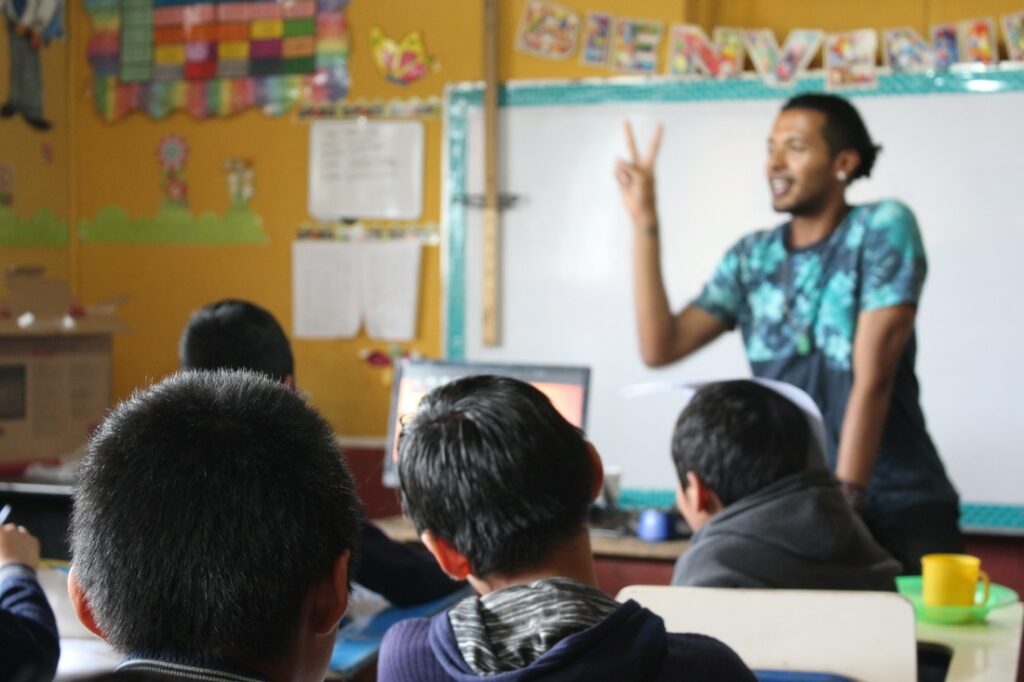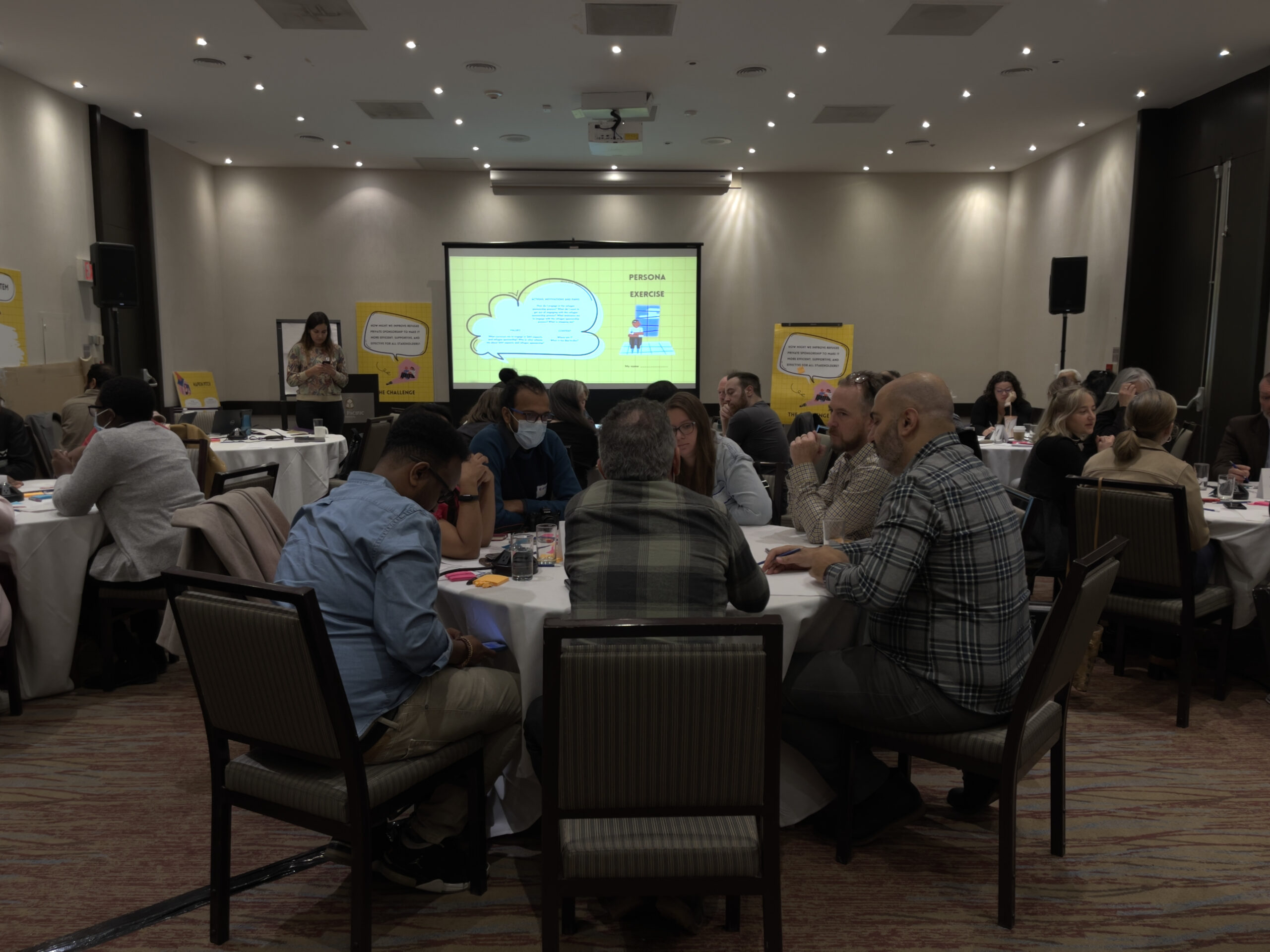
What Sets Venture 2 Impact Apart From Other Volunteering Abroad Opportunities?

By Abby Dooks
INTRODUCTION
Volunteering in another country can be a great opportunity to expose oneself to other cultures, various geographic landscapes and like-minded people who want to lend a helping hand to those in need. But, how do you know your good intentioned efforts are leaving a positive impact on the community you are visiting?
Venture 2 Impact facilitates volunteering abroad programs that take this question very seriously. Not only do we want to ensure that our nonprofit partners are ultimately benefiting from their participation in our program, but that volunteers also have the opportunity to utilize their professionally developed skills in a way that is meaningful and appropriate.
But, aren’t other volunteer abroad programs also meaningful and appropriate? Unfortunately, the conversation around the concept of “Voluntourism” argues that this is not always the case. This begs the question, what can possibly be so bad about volunteering your time abroad to help a community in need and how does Venture 2 Impact create a meaningful and positive experience for all stakeholders involved?
VOLUNTOURISM

For centuries, humans have traveled the world in search of opportunities to lend a hand to others in need. From Christian Missionaries building their chapels in the 1500’s to the establishment of the Peace Corps in the 1960’s– for better or worse, humans have sought out international travel experiences that allow them the opportunity to make a difference in the world.
However, in recent years opportunities for individuals to volunteer abroad have come under scrutiny. Critics argue that some Volunteering abroad programs are less of an initiative to create positive change and more of an opportunity for Westerners to tour an exotic location abroad. Specifically, the satirical newspaper, The Onion, ignited the spark on the Volunteer Tourism debate with their 2014 article headline “6-Day Visit To Rural African Village Completely Changes Woman’s Facebook Profile Picture”.
The article outlined the various negative impacts that had come as a result of the growing USD$6.2 billion industry of Volunteering abroad. This conversation quickly snowballed while other critics added to the rhetoric around “Voluntourism” defined as “assistance rendered to local people by tourists who stay in local communities for less than one year”.
Ultimately, this term has been used to describe volunteer projects that seem to benefit the volunteer and the organization that created the program, more than the local community that the volunteer is hoping to serve. While some programs may simply act as an opportunity for individuals to take a vacation while seemingly lending a hand to a local community, there have also been very dangerous consequences of irresponsible Volunteering abroad initiatives.
Unfortunately, these dangerous consequences have been numerous and have taken place in many areas of the world. The most notable include exploitation of orphans, tasking volunteers to work in roles without the appropriate skills, and using the unpaid labor of volunteers in roles that otherwise could have been filled by locals in the community for a paid rate. The Guardian published a recounted experience from an American volunteer constructing various infrastructure in Tanzania:
“We … were so bad at the most basic construction work that each night the men had to take down the structurally unsound bricks we had laid and rebuild the structure so that, when we woke up in the morning, we would be unaware of our failure.”
While there are many negative impacts of inappropriate Voluntourism initiatives, there have also been positive experiences that have brought people together to freely contribute their skills for the benefit of everyone involved. One way Venture 2 Impact facilitates this positive exchange is through skills-based volunteering.
Banki, S. and Schonell, R. 2018. “Voluntourism and the Contract Corrective”. Third World Quarterly, vol. 39, 8. https://www.huffpost.com/entry/little-white-girls-voluntourism_b_4834574
SKILLS-BASED VOLUNTEERING

Skills-based volunteering has gained popularity in recent years and can act as a response to the issue of Voluntourism. Primarily, skills-based volunteering leverages the professional skills of an individual seeking to engage in volunteer work in order to offer nonprofits a pro-bono service that they otherwise would not have been able to afford. Skills based volunteering not only offers valuable expertise to nonprofits, but also enhances the participant’s skills that they can use in their roles at their organization.
Venture 2 Impact specifically leverages the skills of business and tech professionals from the Fortune 500 companies including DocuSign, Salesforce, Sage and many others. Through these initiatives, experts in their fields have supported nonprofits to digitize their administrative processes, develop technology to scale client intake processes, and offer IT training to vulnerable youth in various communities, among many other projects.
Through these types of volunteering initiatives, Venture 2 Impact hopes to provide meaningful and appropriate support to nonprofits so that they continue to carry out their mission and the goals of their organizations. However, it is not only important to ensure Volunteers are properly skilled, but that they are also filling a significant need.
CO-CREATION

At the onset of a Volunteering abroad program, it is important not to assume a partner organization’s most pressing needs. For example, one might expect that a food bank requires individuals to sort non-perishable food donations. But, the reality could be that the organization might have too many volunteers sorting cans and could really use a digitized process for recording donations– a more efficient process could allow staff more time to work directly with their beneficiaries. Co-creation requires that Volunteering programs ask these questions and develops the opportunity to fill a need that has been identified by the staff at the partner organization.
Co-creation is defined as “the practice of collaborating with other stakeholders to guide the design process”. Collaboration takes place at every step of the Volunteering program, from the initial discovery conversation to the development of recommendations for improvement. Partners offer insight into their own challenges that ensure the program stays on track and continues to target the specific need in a way that aligns with the partners values and mission. This ensures that the program remains relevant and creates the most positive impact possible.
Co-establishing the issue that the Volunteering program is hoping to target can also ensure that the right people are selected to volunteer and have the appropriate skills to develop a solution.
Conclusion
So, the next time you log into your Facebook or Instagram and notice that your old colleague has embarked on a global volunteering adventure, it is okay to question whether or not the program they paid their money to is really creating positive change or simply profiting off of the booming Volunteering abroad industry. It is also okay to ask if the program is filling a need that has been identified by the community or if the organizer pre-supposed their partner’s most pressing issues.
With these questions in mind, being critical of Volunteering abroad does not mean that global cooperation should be completely discredited. Venture 2 Impact recognizes the gaps and failures of past Volunteering abroad programs and consistently works towards providing an appropriate and positive volunteer experience for all of our stakeholders. Through skills-based volunteering and co-creation, Volunteering abroad can offer the opportunity to forge positive change.
If you are wondering how you can get involved in Volunteering abroad programs, consider which volunteering opportunities your skills would be the most suited for and do your research on the organizations you might be interested in joining. Each of us has a unique avenue of influence, you just need to find yours!